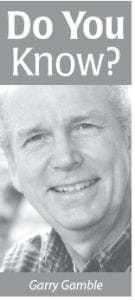Ever witness the best of intentions go awry? Paradoxically, the woman most responsible for what we celebrate as Mother’s Day battled this reality. Never a mother herself, never having had any children of her own, Anna Jarvis would spend the greater part of her later life fighting what Mother’s Day had become. When the holiday went commercial, its greatest champion gave everything to fight it, dying penniless and broken in a sanitarium.
According to historian Katharine Antolini of West Virginia Wesleyan College, “It all started in the 1850s, when West Virginia women’s organizer Ann Reeves Jarvis—Anna’s mother—held Mother’s Day work clubs to improve sanitary conditions and try to lower infant mortality by fighting disease and curbing milk contamination. The groups also tended wounded soldiers from both sides during the U.S. Civil War from 1861 to 1865.”
In the postwar years, Jarvis and other women organized Mother’s Friendship Day picnics and other events as pacifist strategies to unite former foes. Julia Ward Howe, for one—best known as the composer of “The Battle Hymn of the Republic”— issued a widely read “Mother’s Day Proclamation” in 1870, calling for women to take an active political role in promoting peace.
It was the death of her own mother in 1905, however, that inspired Anna Jarvis to organize the first Mother’s Day observances in 1908. Anna wanted to honor her mother by continuing the work she started and by setting aside a day to honor all mothers, believing they were “the person who has done more for you than anyone in the world.”
In 1908, the U.S. Congress rejected a proposal to make Mother’s Day an official holiday, jesting they would be compelled to proclaim a “Mother-in-law’s Day,” as well. It wasn’t until 1914 that Woodrow Wilson signed a proclamation designating Mother’s Day as a national holiday to honor mothers.
It was eight years after President Wilson’s official Mother’s Day proclamation, that my mother entered this world. When she eventually fell in love, married my father in 1942 and introduced the first of their five children a year later, she began receiving her share of handmade cards with poetic verse, plaster of Paris handprints, bouquets of fresh flowers, lacy scarves, and the occasional decorative box of appropriately delicate confections (no stars named after her, as we considered her a star in her own right).
If you’ll kindly allow me to share my personal sentiments in keeping with Anna Jarvis’s original intention for Mother’s Day: I value my mother for her attentive care, seldom granted out of convenience; her unselfish commitment to nurture, to instruct, to correct, to forgive, to encourage, to celebrate. While these attributes may be viewed as the utilitarian nature of a mother’s love, they are, in reality, sacred gifts: ministering and protective in their outpouring.
I learned from my mother the importance of faith in God, the virtue to be found in an attitude of prayer, the resourcefulness that comes with the ability to grow things, to eat healthy foods (we rarely missed a day of school. Not because we were never sick; it was because Mom believed “the leaves of the tree were for the healing of the nations.” A green leaf combined with honey would heal any and all ailments–case closed! Whenever we hinted, we might not be up for school due to feeling a bit indisposed, she would head outdoors and pick the first green leaf she could find, bring it indoors, drizzle it with some raw honey and bulldoze it into our mouth–aphids and all!)
Mom also impressed upon us the great necessity in unearthing truth, studying to show ourselves approved, and choosing daily to live honorably.
George Washington, Father of our Country and first-born son of Mary Ball and Augustine Washington’s five children, was 11 when his father died in 1743 at the age of 49. Choosing not to remarry at the age of 35, George’s mother managed the farm and five children until they had all left home, some 15 years later.
George’s father and older half-brothers (by Augustine’s first wife, Jane Butler who passed away in 1729) studied at the Appleby School in northwest England. Augustine’s early death prevented young Washington from traveling to England for a formal, classical education.
Later in life, George Washington’s writings reveal he was somewhat unsettled regarding his lack of advanced education. However, undaunted, Washington acknowledged that he owed everything to his mother – the education and habits of his early life, his high moral principle, his perfect self-possession, his clear and sound judgment, his inflexible resolution and untiring application – all were developed by her training and example.
George Washington paid his last visit to his mother en route to New York for his inauguration. Mary Ball Washington lived to see her son, George, unanimously elected as this country’s first president on February 4, 1789; seven months before she died on August 26, 1789, three months shy of her 81st birthday.
Her firstborn son, declaring: “My mother was the most beautiful woman I ever saw. All I am I owe to my mother. I attribute all my success in life to the moral, intellectual and physical education I received from her.”
As for my own mother’s example of maternal devotion, I sat alone, reverently, and gratefully, as I watched her release her last breath in this world, April 12th of this year. This will be the first Mother’s Day without Mom.
Former Cook County Commissioner Garry Gamble is writing this ongoing column about the various ways government works.



Loading Comments